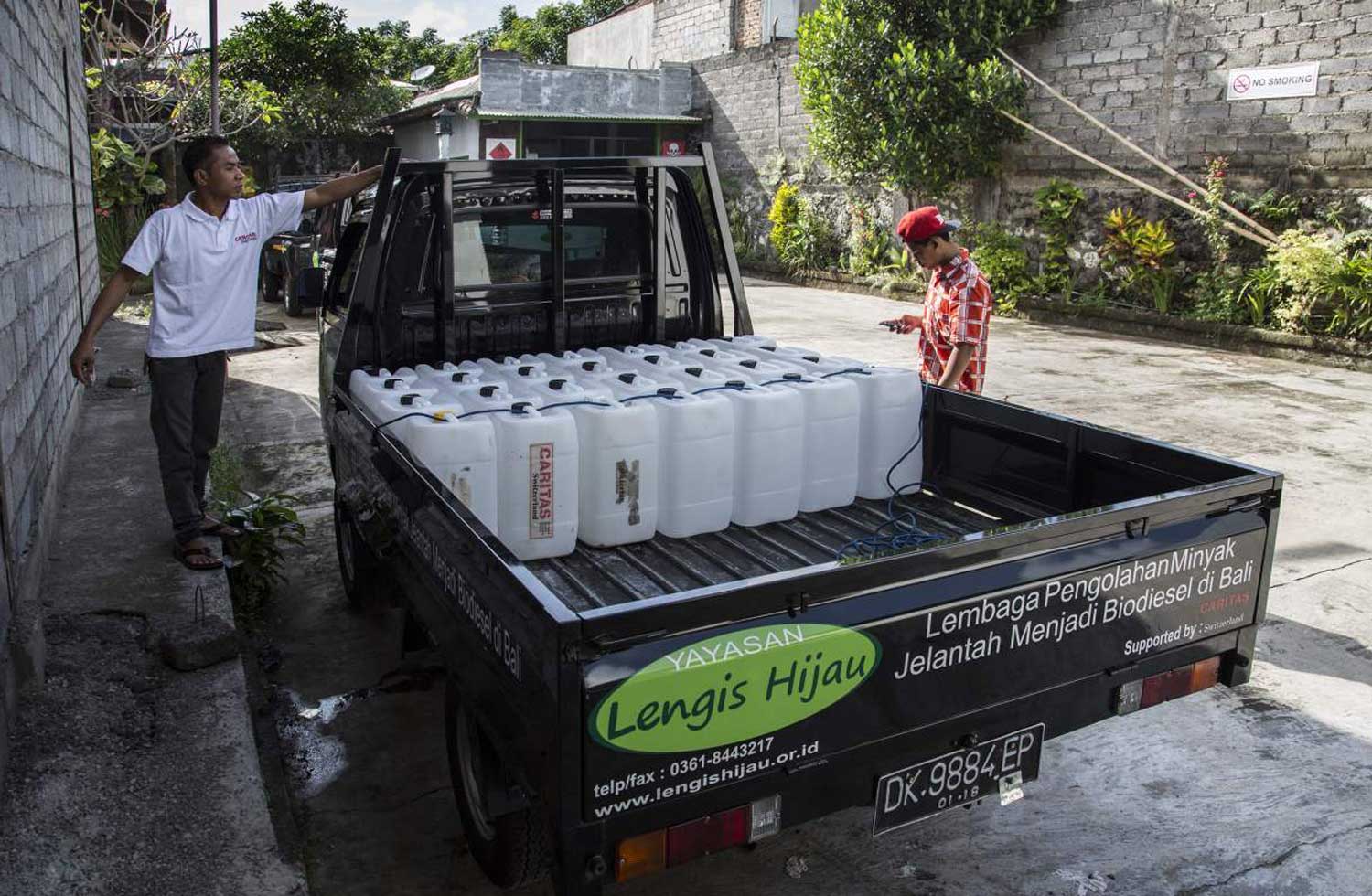Biodiesel de l'huile de cuisson usée en Indonésie
Type de projet: Gestion des déchets et compost
Site du projet: Bali, Indonésie
Statut de projet: Terminé, plus de certificats disponibles
Réduction annuelle des émissions de l'ensemble du projet: 700 t (total)
In Bali, a plant for producing biodiesel from used cooking oil from the island’s tourist sector has been installed to protect the climate and the environment and to fight for better health conditions of the poor. The establishment of a local collecting system benefited the development of an organised waste disposal system, created jobs for local people and reduced CO₂ emissions by substituting fossil fuel with biodiesel.
With around four million visitors per year, Bali is the largest tourist destination in Indonesia and one of the biggest and most popular in the world. As a result, waste disposal is a so far unresolved problem. One aspect of the waste problem relates to the cooking oil used in hundreds of hotels and restaurants.
In Bali, there is no systematic waste disposal system for cooking oil. It is either filled into canisters and disposed of together with solid waste, dumped into wastewater, or finds its way to middlemen in the black market. There the waste oil is cursorily cleaned and then sold for cooking to small kitchens. This entails substantial health risks, especially for urban poor. This practice is officially refused by many hotels, however, it is often put up with due to the lack of alternatives. In addition to this health threat, the disposal of used cooking oil in such an unsustainable manner also results in the pollution of water bodies, freshwater resources, and soil. To contribute to better health and environmental conditions, this project collected waste oil and processes it into biodiesel.
There is a black market for the oil which is hard to see through. We are not willing to fight, we try to convince people to 'think green'.
The waste oil was collected by Lengis Hijau (which means “green oil” in Balinese), the operator of the plant, directly at the hotels and the restaurants or was brought to the plant.
The project was initiated by the charitable organisation Caritas Switzerland and represented a cooperation between Caritas, Kuoni Travel and myclimate. In the first part of the operational phase, the social business enterprise Lengis Hijau was founded, which took over the operational management after the transition phase. The revenues from the sale of biodiesel were used for the operation of the enterprise. Lengis Hijau also createed jobs. Many workshops, meetings, newspaper articles and television publicity helped to inform the local population, the tourist sector, and politicians about the project as well as raise awareness in topics like waste disposal, climate and environmental protection.
From this project, which was realised from 2014 until 2016, all emission reductions are being bought by KUONI.
Situation sans projet
Informal disposal of waste oil and utilization of fossil fuelsDocumentations
Numéro de projet
7163








